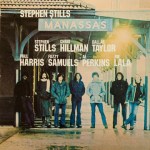 Audiophile Quality Pressings of Orchestral Music Available Now
Audiophile Quality Pressings of Orchestral Music Available Now
Classical Albums from The Core Collection Available Now
Sonic Grade: F
The sound is smeary, thick and opaque because, among other things, the record was mastered by Doug Sax on tube equipment from a copy tape, and not all that well either.
It is yet another murky audiophile piece of trash from the mastering lathe of the formerly brilliant Doug Sax. Back in the day he cut some the best sounding records ever made.
Then he started working for Analogue Productions and never cut a good sounding record again as far as I know. (Obviously I cannot have played everything he worked on from the mid-90s on. Who would want to?)
On this Offenbach record, in Doug’s defense it’s only fair to point out that he had dub tapes to work with, which is neither here nor there as these pressings are not worth the dime’s worth of vinyl used to make them.
Should you buy a record because it was made this way?
According to the back of the jacket:
Mastering by Doug Sax at The Mastering Lab using an all vacuum tube system.
Single Step processing was used for this “Limited Edition” release. The stamper was made from the first generation master and not more than 500 were pressed from each stamper. This process allows all records to be of “test pressing quality.” Klavier records are used by many manufacturers and audio specialty shops for demonstrating their equipment.
Maybe the notoriously hearing-challenged Chad Kassem wanted this sound — almost all his remastered titles have the same faults — and simply asked that Doug cut it to sound real good like analog spossed ta sound in the mind of this kingpin, which meant smooth, fat, thick and smeary. (Back in the 70s, if you had a fairly typical stereo system — Japanese receiver and three-way box speakers with a 12″ woofer — you surely know the sound I am talking about. Record stores are one of the few places one can go to hear that sound these days. If you’re old like me, it can really take you back.)
This Is Analog?
Apparently, even in our modern era this is what some folks think analog should sound like.
Just ask whoever remastered The Beatles on Heavy Vinyl. Somebody boosted the bass and smoothed out the upper midrange, and I don’t think they did that by accident. They actually thought it was good idea.
Harry Moss obviously would not have agreed, but he’s not around anymore to do the job right.

Here is the cover for the real EMI. No idea if the sound is any good, but it has to be better than the awful Klavier, doesn’t it? (We plan on doing a shootout for this title soon.)
Below are some thoughts from a recent classical listing that we hope will shed some light on our longstanding aversion to the sound of these modern remastered records.
What is lost in these newly remastered recordings? Lots of things, but the most obvious and bothersome is transparency. Modern records are just so damn opaque. We can’s stand that sound. It drives us crazy.
Important musical information — the kind we hear on even second-rate regular pressings — is simply nowhere to be found. That audiophiles as a whole — including those that pass themselves off as the champions of analog in the audio press — do not notice these failings does not speak well for either their equipment or their critical listening skills.
It is our contention that no one alive today makes records that sound as good as the ones we sell. Once you hear one of our Hot Stamper pressings, those 180 gram records you own may never sound right to you again. They sure don’t sound right to us, but we are in the enviable position of being able to play the best properly cleaned older pressings (reissues included) side by side with the new ones, where the faults of the current reissues become much more recognizable, even obvious. When you can hear them that way, head to head, there really is no comparison.




 Lots of rave reviews for the two of them in the audiophile press at the time though. I guess nothing ever really changes, does it? Played a Sundazed record lately? Well, there you go. How are these people impressed with such bad sound?
Lots of rave reviews for the two of them in the audiophile press at the time though. I guess nothing ever really changes, does it? Played a Sundazed record lately? Well, there you go. How are these people impressed with such bad sound?
